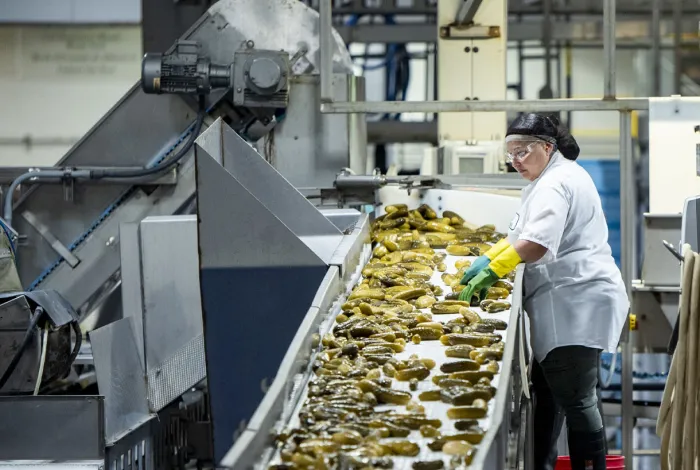

Now Available!
Get your copy of the 7th Annual State of Smart Manufacturing and hear from 300+ manufacturers in this new survey report!
Subscribe to Our Blog
For a monthly digest of expert insights, data points, and tips like the ones in this article.
3 Reasons Why Traceability is Key to Reducing Errors on Your Plant Floor
Traceability, Document Management System
High profile recalls have increased in recent years and manufacturers have paid steeply not just in money but also the impact on their reputation. Paper based records are prone to errors, difficult to manage, and may be impossible to find which means days of delays in responding to a recall.
A clear way to reduce errors on your plant floor and to avoid a recall, is implementing a system that provides full traceability for inventory and reporting.
It provides manufacturers the ability to:
-
Apply Rigorous Track and Trace Methodology
A system that uses rigorous track and trace methodology throughout governs operational behavior. Operators cannot proceed to next steps unless the previous step is validated against a digital control plan that has been designed and approved by engineering. This inherent error-proofing protects against quality failures from operators using materials that may look alike but are not. It also ensures achievement of food safety and compliance certifications, as well as inventory accuracy and limiting scrap. -
Documenting and Recording Each Step
Barcode scanners and printers record and document every step from receipt to production and on to shipping. For every action on the plant floor, there is a transaction in the system. Simply tracking the receipt of raw materials and shipment of finished goods may fulfill minimum requirements, but the real value of product traceability is when every step is tied together in an end-to-end historical chain. A high-resolution trace tree illustrates the path of every part or lot of material visually and shows how it relates to every product and shipment of finished goods. -
Catching an Error Before It Becomes a Costly Recall
When a particular lot of material has been flagged or quarantined as non-compliant, the system will automatically trigger the “no-go” response wherever that material is trying to be loaded. Suspect orders can be tracked down to a specific lot of material or shipment of finished goods to identify any and all affected product. This makes it much faster to trace backwards or forwards to find the responsible party or affected customer(s) to better contain the issue and minimize your exposure. Allergen management becomes easy. Without such a capability, companies typically recall whole production runs at greater expense than necessary.
Errors end up costing your company both in actual dollars and reputation—whether it’s loss of time, loss of material, or worse, impact to customer health.
To learn more about how food and beverage manufacturers are leveraging systems for comprehensive traceability, read how Hausebeck Pickles and Peppers gained control of its operations. By moving from paper-based processes to a cloud-based solution, Hausbeck went from 70% inventory accuracy to 99.6% while significantly improving its traceability. Hausbeck is now able to trace ingredients forward and backward from seed to store in minutes.
For more insights on how smart technology can support the needs of food and beverage manufacturers, visit our Food and Beverage Industry page.

